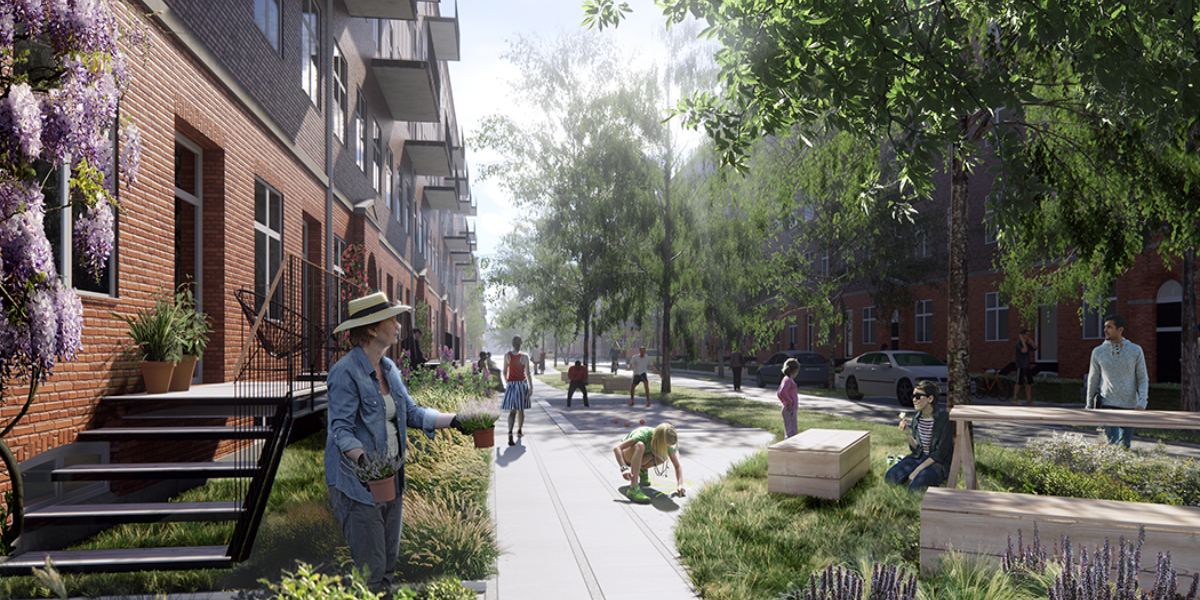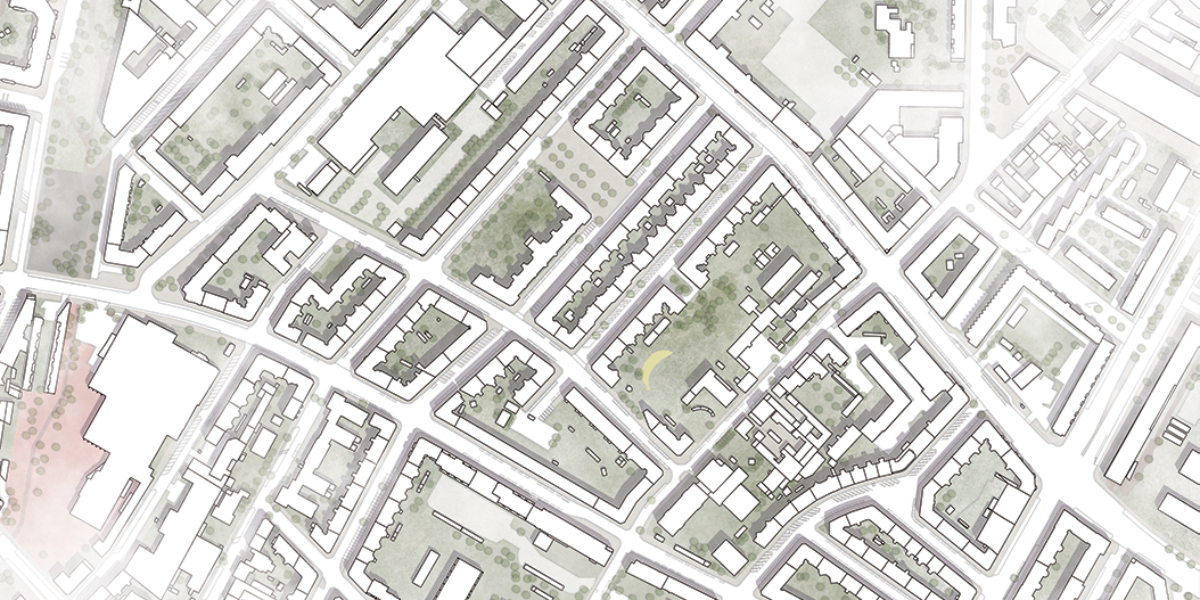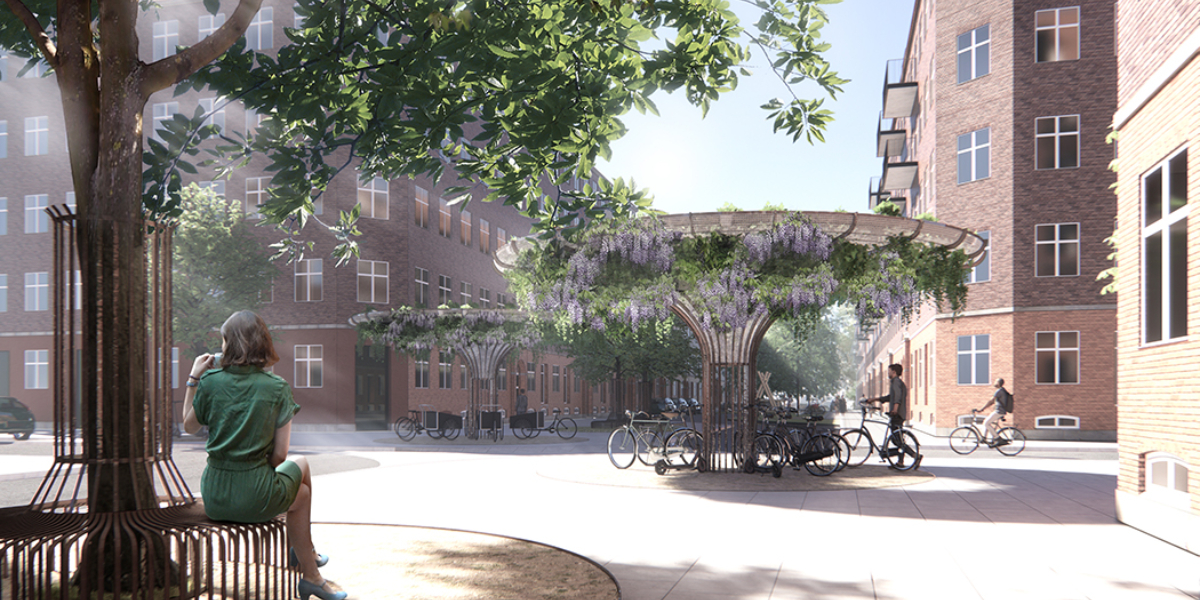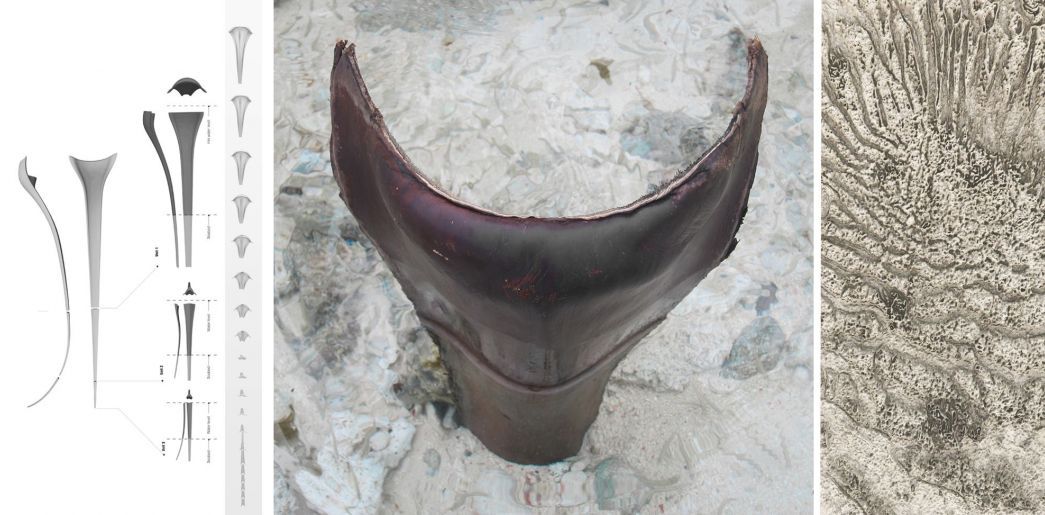AWARD YEAR
2023
CATEGORY
Community
GOALS
Sustainable Cities & Communities
KEYWORDS
urban planning, intelligent roads, pedestrians, sustainable cities
COUNTRY
Denmark
DESIGNED BY
JAJA Architects
WEBSITE
https://jaja.archi/project/copenhagen-car-freedom/
COPENHAGEN CAR FREE(DOM)
Creating increased housing quality and quality of life in Copenhagen
How does it work?
Inspired by and based on Copenhagen's ‘Finger Plan’ from 1947, the project introduces a paradigm shift in traditional mobility planning. In the following, we want to show what our streets and neighborhoods can look like if we prioritize green and shared modes of transportation to a much higher degree, such as bicycles, electrical scooters, shared cars, and public transportation.
The idea behind ’The Finger Plan’, where Copenhagen is the palm connected with surrounding municipalities like fingers, gives us an effective tool to achieve coherence across areas. However, the project’s strategies and recommendations are relatively simple to incorporate across municipal boundaries. We propose that the car-free zone is placed in the ‘palm’ combined with several strategic mobility hubs located next to major access roads, light rails, and S-trains. The development of such hubs is already being developed in areas like Ny Ellebjerg, Buddinge, Herlev, Lyngby, Glostrup etc.
Why is it needed?
The project contains four types of roads and streets: The green ‘super boulevards’, the access roads, the island streets, and the residential streets. The streets each have a distinct function and character and operate with a clear, inherent hierarchy. Cars cannot travel across traffic lanes, and the Super Boulevards, therefore, act as a barrier across and a fast-track along. The Super Boulevards thus have far fewer intersections, which both provides space for the city and forms the basis for an efficient green connection through the city.
How does it improve life?
The project contains four types of roads and streets: The green ‘super boulevards’, the access roads, the island streets, and the residential streets. The streets each have a distinct function and character and operate with a clear, inherent hierarchy. Cars cannot travel across traffic lanes, and the Super Boulevards, therefore, act as a barrier across and a fast-track along. The Super Boulevards thus have far fewer intersections, which both provides space for the city and forms the basis for an efficient green connection through the city.





